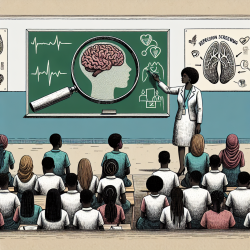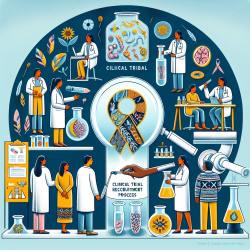Introduction
In the field of speech-language pathology, especially when working with children, understanding the broader social determinants of health is crucial. The recent research article titled "Addressing housing-related social needs for Medicaid beneficiaries: a qualitative assessment of Maryland’s Medicaid §1115 waiver program" offers valuable insights that can enhance practitioner skills and improve outcomes for children receiving therapy services.
Understanding the Maryland Medicaid §1115 Waiver
The study explores the Assistance in Community Integration Services (ACIS) program under Maryland’s Medicaid §1115 waiver. This initiative aims to provide housing case management and tenancy support services to individuals at risk of homelessness. While the primary focus is on adults, the implications of stable housing extend to families and children, impacting their health and educational outcomes.
Key Findings and Their Implications for Practitioners
The research identified several themes that can inform practitioners in their work:
- Barriers to Housing: The tight housing market and client circumstances, such as poor credit or rental history, pose significant challenges. Understanding these barriers can help practitioners advocate more effectively for families in need.
- Cross-Sector Collaboration: The ACIS program's success in leveraging existing resources and reducing service silos highlights the importance of collaboration. Practitioners can enhance outcomes by working closely with other sectors, such as housing and healthcare.
- Communication Challenges: Effective communication within programs and with clients is critical. Practitioners should prioritize clear communication strategies to ensure that families understand and can access available resources.
- Data Collection and Documentation: The study underscores the importance of proper documentation for service reimbursement and program evaluation. Practitioners should be diligent in maintaining accurate records to support funding and demonstrate program effectiveness.
Encouraging Further Research and Implementation
For practitioners, this study serves as a call to action to delve deeper into the social determinants affecting their clients. By understanding and addressing housing-related needs, practitioners can contribute to more holistic care that supports both health and educational outcomes for children.
Conclusion
The insights from Maryland’s Medicaid §1115 waiver program offer valuable lessons for speech-language pathologists and other practitioners. By integrating these findings into practice, professionals can enhance their skills and contribute to better outcomes for children and families.
To read the original research paper, please follow this link: Addressing housing-related social needs for Medicaid beneficiaries: a qualitative assessment of Maryland’s Medicaid §1115 waiver program.










